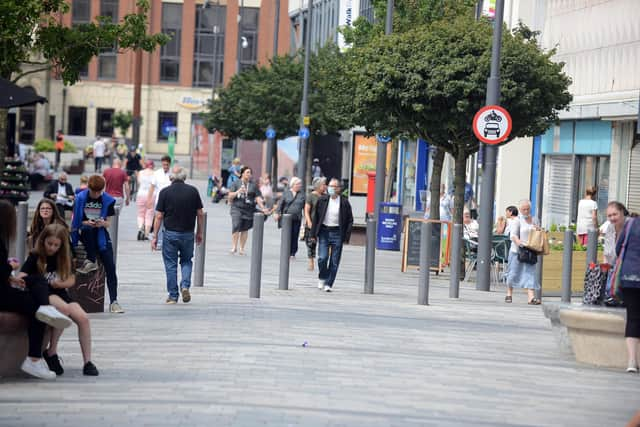Scientists discover no cases of the ‘stealth Omicron’ variant in Sunderland, according to latest figures
and live on Freeview channel 276
Cases of the Omicron sub-variant BA.2 have been in the UK for some time - the first example was found on December 6, 2021.
But numbers are growing both here and abroad, and the UK Health Security Agency named it a ‘variant under investigation’ on January 21.
Advertisement
Hide AdAdvertisement
Hide Ad

Early analysis suggests it has a faster growth rate than the Omicron strain currently dominant in the UK, BA.1, but there is not enough evidence to say whether it causes more severe illness.
The Wellcome Sanger Institute analysed 38,000 positive Covid-19 tests taken in the week to January 15 to determine which variant they were.
It found one in 100 samples were now Stealth Omicron across England.
Advertisement
Hide AdAdvertisement
Hide AdIt analysed 386 tests from Sunderland, successfully identifying a variant in 350 of them but BA.2 was found in no tests.
It is not known where Stealth Omicron originated, with the first cases found in the Philippines and high numbers being reported in Denmark.
It got its nickname because it does not exhibit a tell-tale marker on its spike protein, revealed through a common type of PCR test, which the authorities had previously used to monitor the spread of Omicron.
Dr Meera Chand, COVID-19 Incident Director at the UKHSA, said: “It is the nature of viruses to evolve and mutate, so it’s to be expected that we will continue to see new variants emerge as the pandemic goes on.
Advertisement
Hide AdAdvertisement
Hide Ad“Our continued genomic surveillance allows us to detect them and assess whether they are significant.
“So far, there is insufficient evidence to determine whether BA.2 causes more severe illness than Omicron BA.1, but data is limited and UKHSA continues to investigate.”
Health secretary Sajid Javid said: “We are learning to live with this virus – and thanks to our world-leading surveillance system we can rapidly detect and carefully monitor any genetic changes to COVID-19.
“Our exceptional vaccine rollout means the number of people severely affected by COVID-19 is low, and the UK’s innovation and research has discovered life-saving treatments for those most at risk from COVID-19.”
